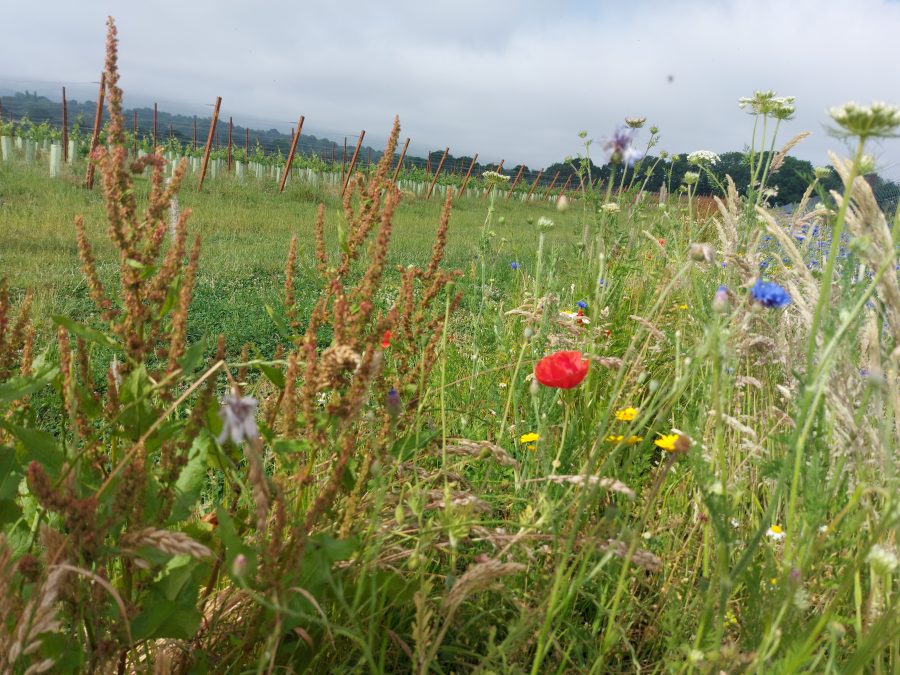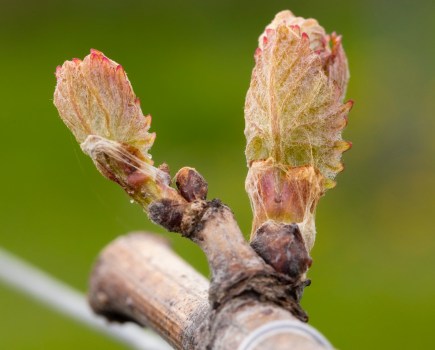For the first time, global warming has exceeded 1.5°C across an entire year, according to the EU’s climate service.
At the current rate of emissions, the Paris Agreement goal of limiting warming to 1.5°C as a long term average – rather than a single year – could be crossed within the next decade. The impacts of climate change continue to accelerate and extreme heatwaves, droughts, wildfires and floods that have occurred over the past 12 months have given us a taste of what could come. The effect on viticulture and wine producers will be significant, and therefore within the context of this global crisis it’s not surprising that grape growers and wine producers the world over are looking for ways to help mitigate Climate Change and adapt to variable and extreme conditions.
One beneficial movement building momentum is regenerative viticulture and here at Vinescapes we actively embrace regenerative approaches, investing in the vineyards of today to create a more sustainable and vibrant wine world for the future. The regenerative viticulture movement started as a response to the environmental challenges posed by conventional grape growing practices and is a holistic approach to grape growing that aims to restore and enhance the health of vineyard ecosystems. It goes beyond traditional organic or biodynamic practices by focusing on improving soil and plant health, carbon sequestration, biodiversity gains and overall ecosystem resilience. The goal is not only to produce high-quality grapes but to contribute positively to the environment and to try to help reverse climate change.
Globally, the push for more sustainable viticulture is coming from markets, producers, governments and the International Organisation of Vines and Wine (OIV). The international focus on regenerative viticulture is being advocated for by the Regenerative Viticulture Foundation (RVF), a pivotal organization dedicated to advancing and supporting regenerative viticulture practices. At this global policy level Vinescapes play an important role; Dr Alistair Nesbitt, the CEO of Vinescapes, serves as a founding Trustee of The Regenerative Viticulture Foundation (RVF) and holds a position as a committee member of the Sustainability and Climate Change group within the OIV. In these capacities Vinescapes play an important part in propelling transformative changes for the international viticultural community.
Nationally Dr Alistair Nesbitt wrote the UK’s first guidelines for sustainable viticulture in 2012, under the WineSkills program delivered by Plumpton College and funded by DEFRA those guidelines and training materials have now evolved into the current Sustainable Wines of Great Britain (SWGB) Scheme which gives authority, assurance and credibility to the way in which sustainability is measured and observed in the wine industry of Great Britain.
Perhaps most importantly, in a local context, working with producers Dr Nesbitt and his team of skilled viticulturists spend time training and implementing regenerative approaches to vineyards in the UK and abroad.
From those roles and links it is clear to see where Vinescapes passion for viticulture sits, engaging with and supporting essential changes to the way vineyards are managed and wine is produced. Vinescapes believes it is important to build a generation of viticulturists who have the skills and knowledge to manage and advise on the vineyards on the future. Recently Vinescapes Viticulturist, Rob Poyser, was recently honoured with the WineGB Rising Star award for his dedication to Sustainable Viticulture, showing that the Vinescapes passion for regenerative viticulture is starting to pay dividends. The Vinescapes Graduate Scheme, a world first, also provides a distinctive opportunity for emerging professionals to enter the industry and acquire hands-on experience in regenerative viticulture.
The climate crisis will impact everyone on the planet, but it is hoped that through both individual and collective action we can build resilience in the UK and international wine production sectors. The investments Vinescapes are making are geared towards cultivating a generation of viticulturists fit for the future.
To find out more about our work or those of the organisations above, or what you can do engage with sustainable or regenerative practices please contact us via:




